Ancestry & Evolution

Out of Africa revisited: Where did humans migrate after leaving the continent?
A new study offers that bands of hunter-gatherers appear to have lingered for thousands of years as a homogeneous population ...

Curvy women advantage? Large buttocks may signal an evolutionary edge
Research suggests that humans evolved to have larger buttocks compared to other mammals because we primarily walk on two legs ...
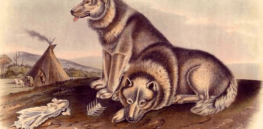
Puppy love: When did the ‘unique and deeply ancient role of dogs as human companions’ begin?
A poignant, 2,000-year-old burial in northern Italy could be the latest evidence of an ancient friendship between man and dog ...
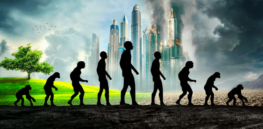
Generation X and evolution illiteracy: 30% or less acknowledge human evolution, although they do get slightly wiser as they age
A new study illustrates that the attitudes of Americans in Generation X toward evolution shifted as they aged ...

City-dwellers are gradually losing their ability to digest plant foods
Urban humans have developed trouble digesting plants while rural populations still have lots of the gut bacteria that break down ...

Is tilapia a human-made freak that we should avoid — or an evolutionary rockstar?
Posts were appearing on my Facebook feed warning against the dangers of eating tilapia. So I decided to do a ...

‘Infantile amnesia’: People can’t form conscious memories before the age of 3. Could there be an evolutionary purpose?
Toddlers remember events in context, and new research suggests such memory lapses play an important role in brain development ...

Mythos and logos: Are people programmed to ‘need’ religion?
Justification systems: science is one, religion can be thought of as another, while humans are ultimately justifying creatures ...

Studying chimpanzees illuminates how speech evolved in humans
Scientists compared parts of the brain that correlate to speech in humans and primates to understand how speech evolved in ...

Humans and whales are the only animals to go through menopause. What can this tell us about aging and fertility?
Just five species of whales with teeth are the only others known to have females that regularly live long after ...
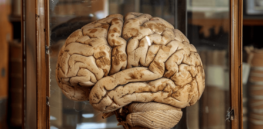
Preserved human brains: 4,400 date back nearly 12,000 years
A recent study has demonstrated that human brains can survive the test of time far better than previously believed ...

Extraterrestrial musings: Does Jupiter’s ice-coated moon Europa host life?
Jupiter’s fourth-largest moon, Europa, has captivated planetary scientists interested in the geophysics of alien worlds ...

Life’s purpose: Yale psychiatrist explores how evolution could influence the meaning of life
Samuel Wilkinson discusses evolutionary forces that spur us to be altruistic and what inspired his fascination with life’s purpose ...

When did our human ancestors arrive in Europe? 1.4-million-year-old artifacts made by hominids track their migration
An artifact-rich archaeological site in western Ukraine may be the oldest spot in Europe to contain evidence of early humans ...
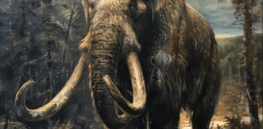
Hairy questions: As scientists edge closer to resurrecting mammoths, a host of ethical and scientific issues arise
Colossal Biosciences, a biotechnology company based in Dallas, announced [March 6] that it has produced a line of Asian elephant ...

Why did humans lose their tails?
A genetic change in our ancient ancestors may partly explain why humans don’t have tails like monkeys, finds a new ...

Podcast: Evolution of altruism — If evolution favors the survival of the fittest, how did humans gain compassion and empathy?
Altruism Evolution: If evolution favors the survival of the fittest, where did the impulse to help others come from? ...
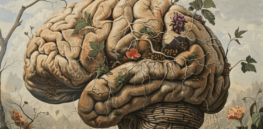
Infections and intelligence: A virus could have been evolutionary spark that led to rapid evolution of human brains
A new study has unraveled a mystery that is key to understanding the course of human and animal evolution ...

Viewpoint: Does Donald Trump’s authoritarian style and his popularity among ultra-conservative religious leaders echo the rise of Hitler’s Nazi Germany?
Each September marks the anniversary of Nazi Germany’s Nuremberg Laws, whose passage in 1935 stripped Jews of their German citizenship and ...
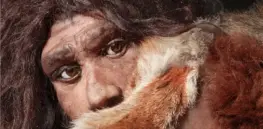
When in our evolutionary history did we become ‘human’?
We now know from evolutionary science that humanity has existed in some form or another for around 2 million years ...
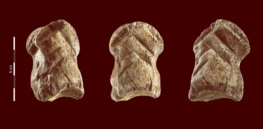
Did Neanderthals create art? Engraved bone raises questions about human ancestor creativity
Examples of artistic expression in the archaeological record that reshape what we know about the cognitive abilities of Neanderthals ...

‘Deleting Darwinism’: Influential Indian nationalist calls for rejection of evolution, turns towards Hindu creationism
Magazine Organiser carried article arguing in favour of the ‘logic of deleting Darwinism’ and ‘Intelligent Design' ...

Looking back at ancient Greek and Roman aging experiences to understand origins of Alzheimer’s
Medical texts from 2,500 years ago suggesting today’s widespread dementia stems from modern environments and lifestyles ...

Is technology-driven ‘exponential change’ overwhelming humanity’s genetically-inherited ability to adapt?
Human civilization has always survived periods of change. Will our rapidly evolving technological era be an exception to the rule? ...

What do high-altitude Andean communities and deep-sea fish have in common? Genetic mutations that aid survival in low-oxygen environments
Researchers discovered an example of convergent evolution in the Peruvian and Tibetan highlander communities ...

Pinning down our ‘great leap forward’: When did ancient humans start to act behaviorally modern?
How are we different from ancient humans? Since our species first appeared, we’ve been on a wild ride from the ...
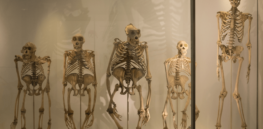
How did human ancestors go from walking on all fours to standing on two legs? Ancient eardrum fossils illuminate the likely evolutionary path
How did humans learn to walk? The inner ear of a 6-million-year-old fossil ape reveals clues about the evolution of ...

